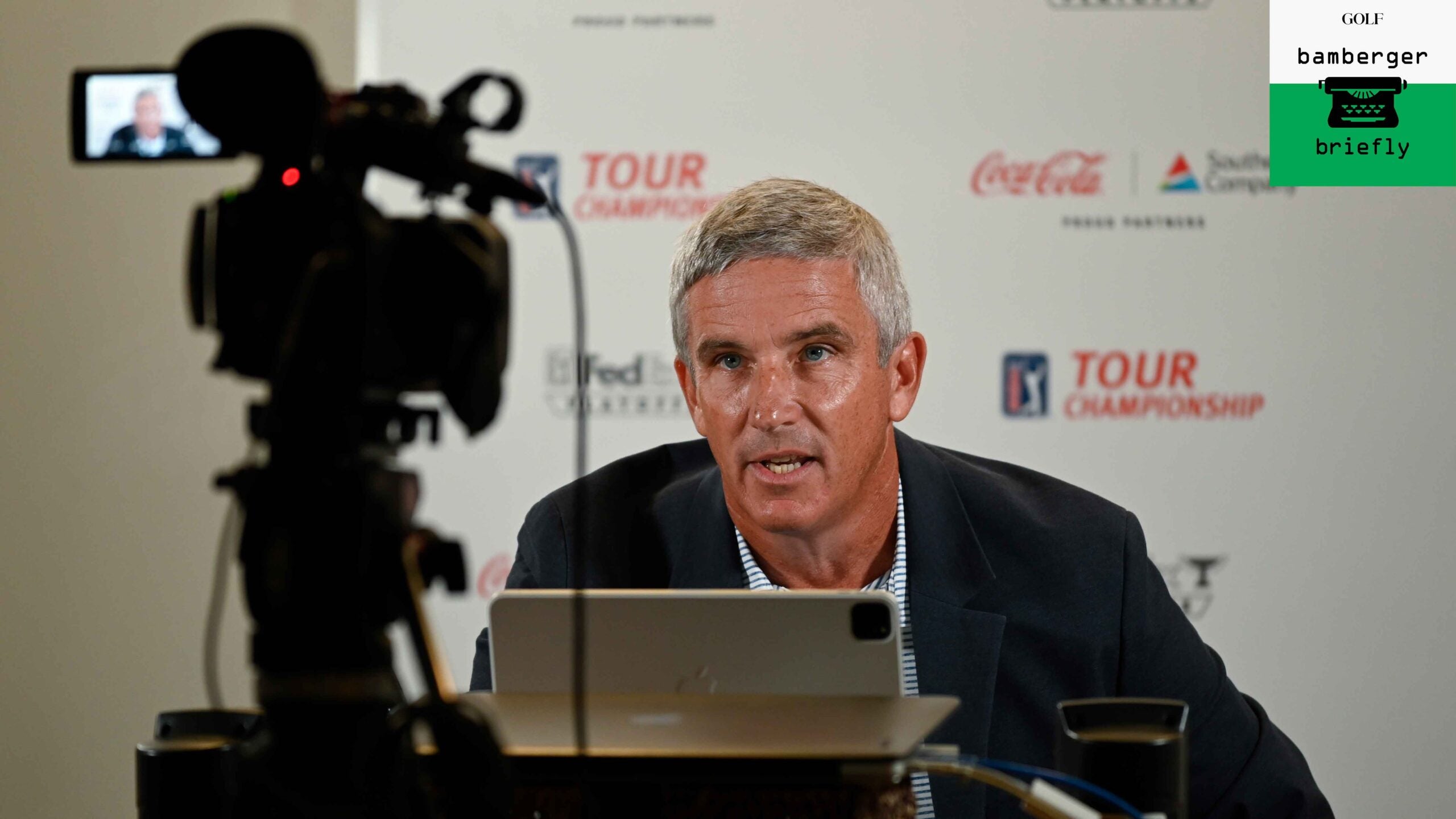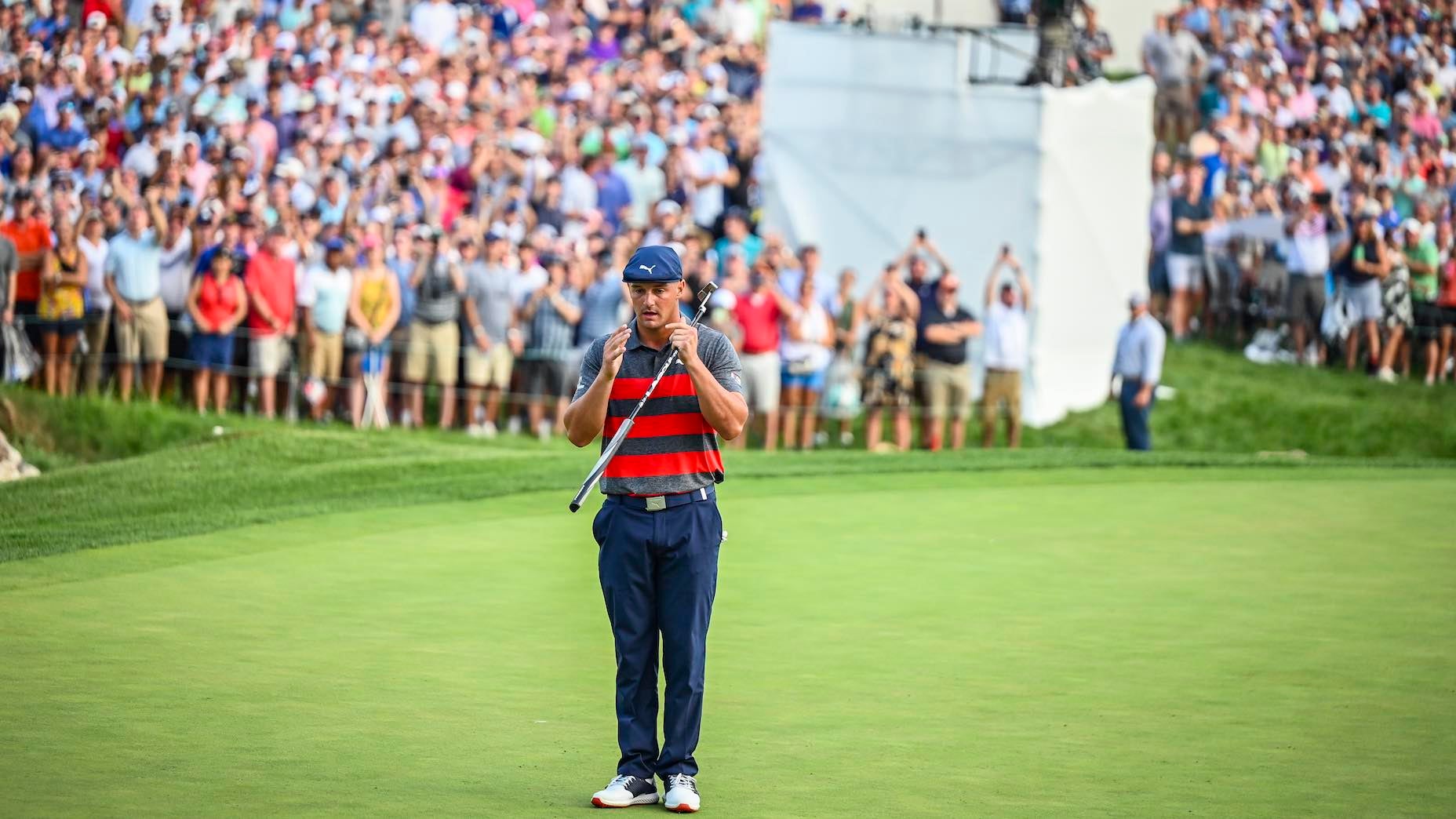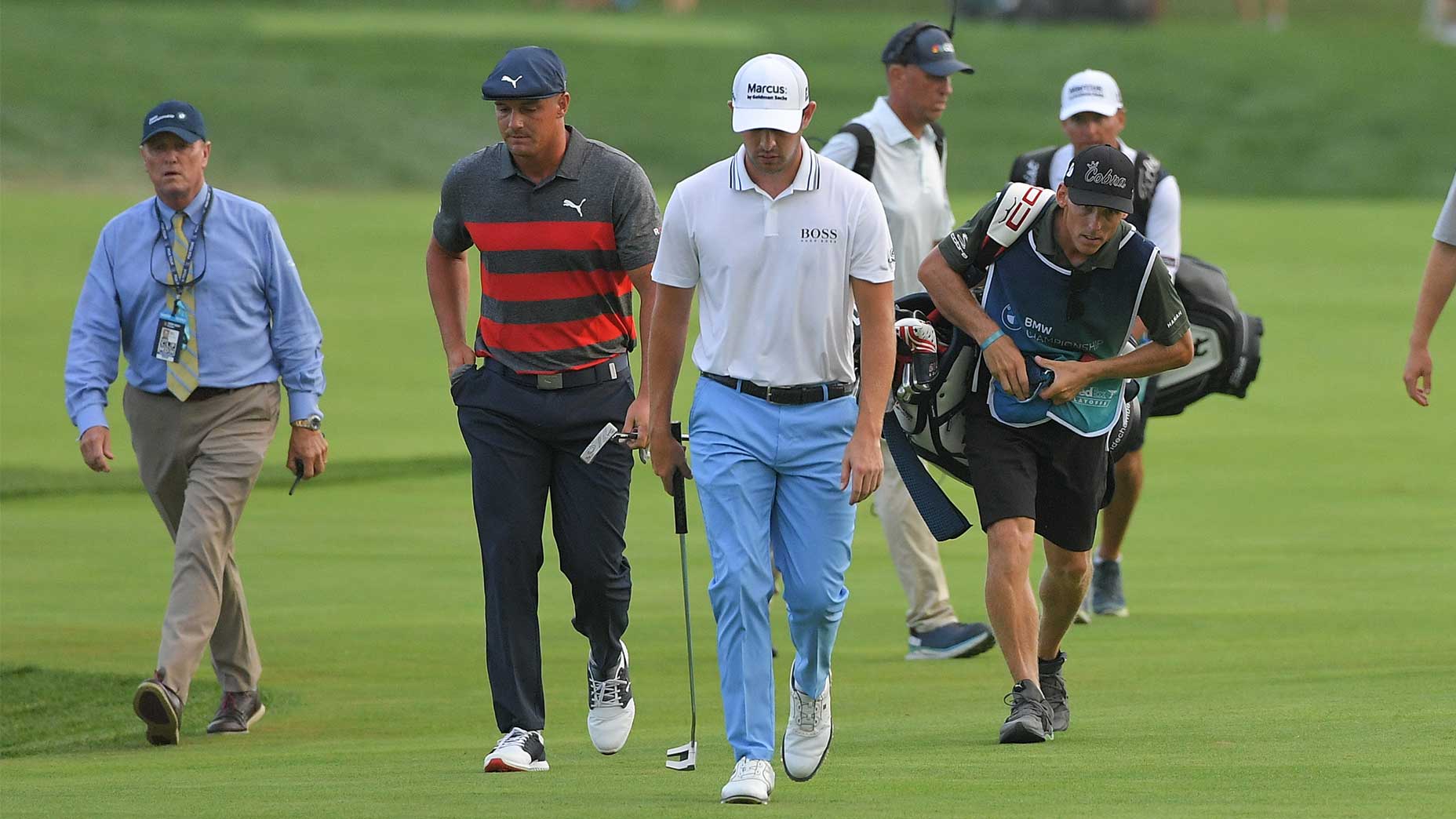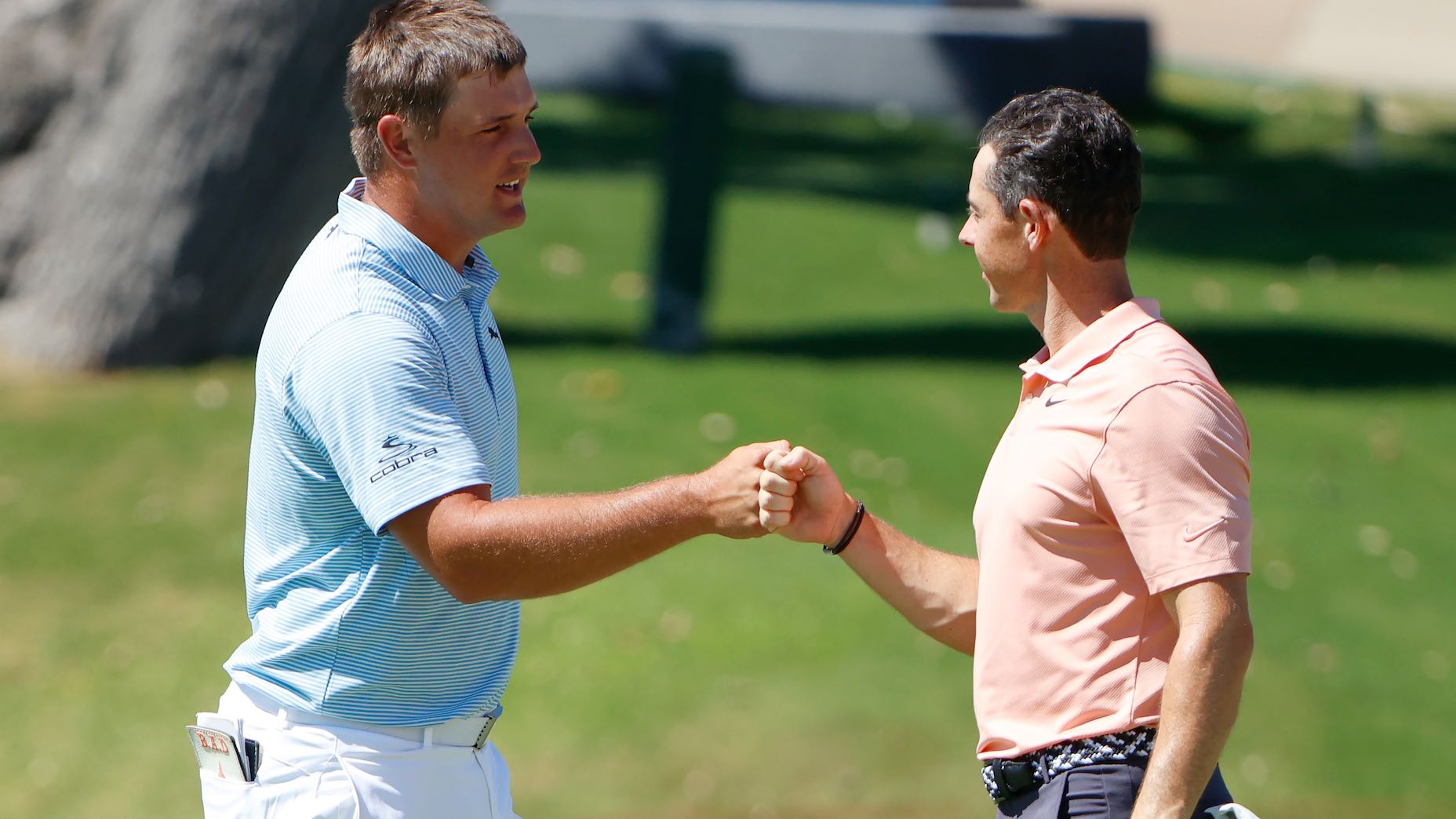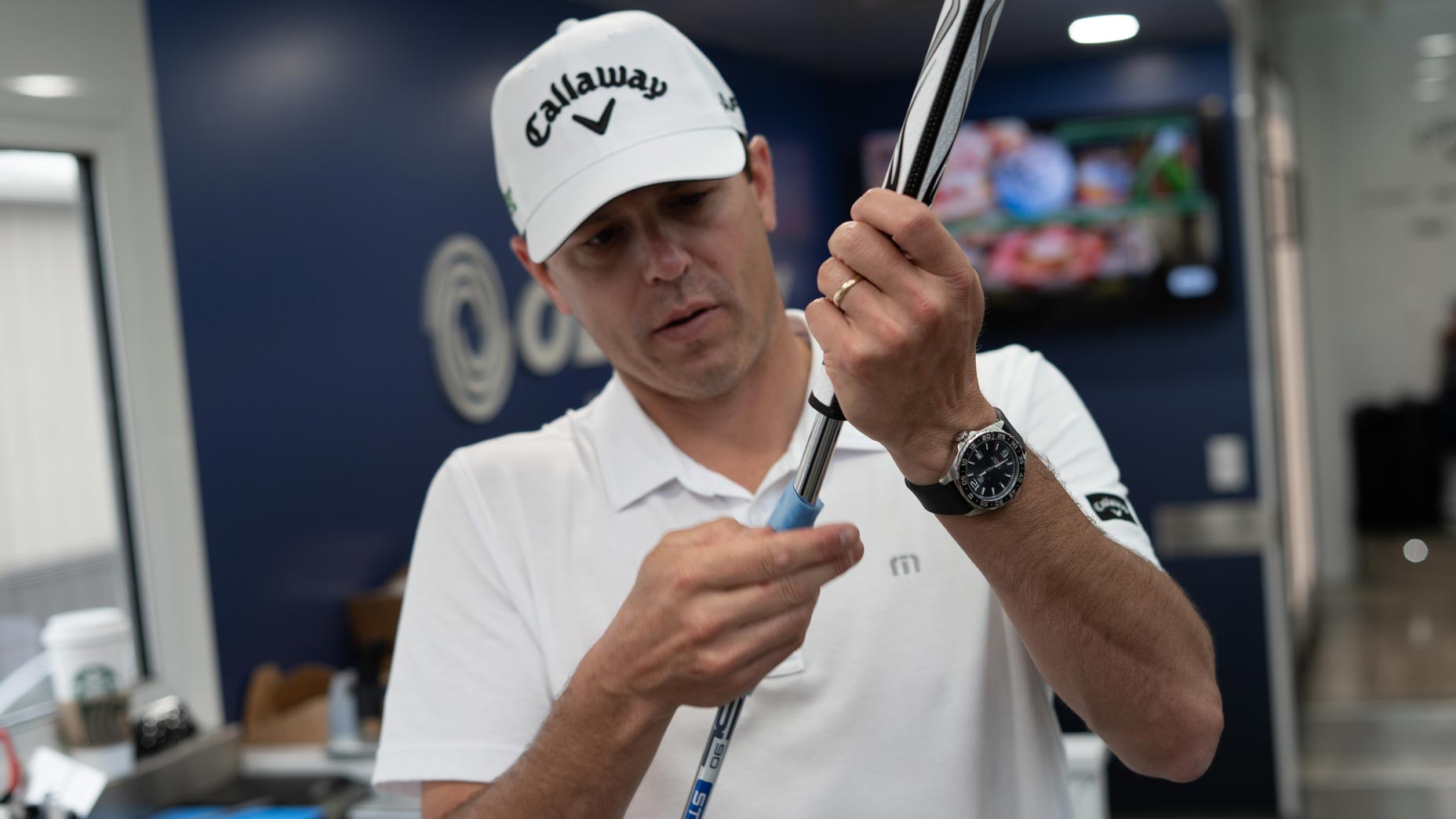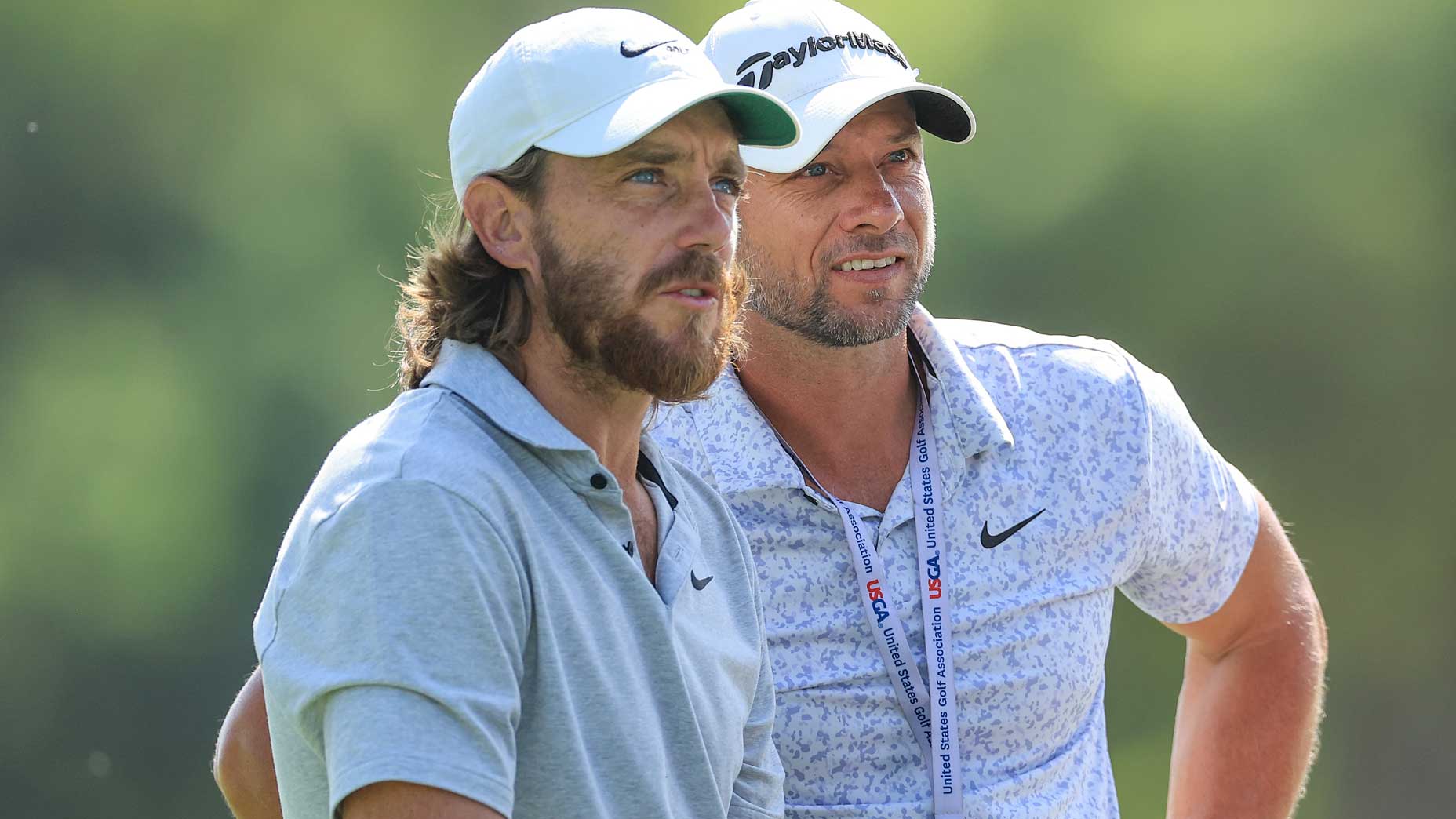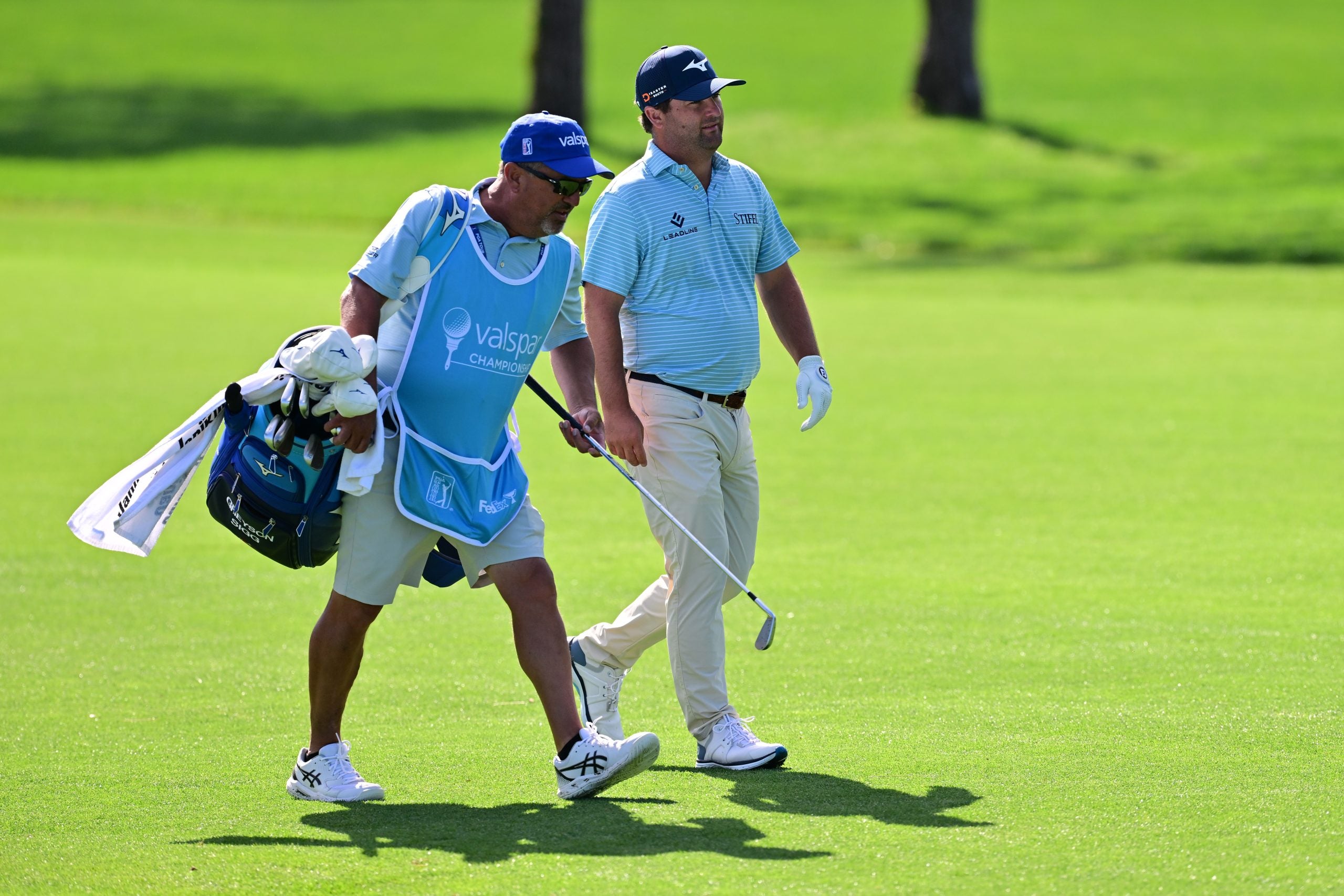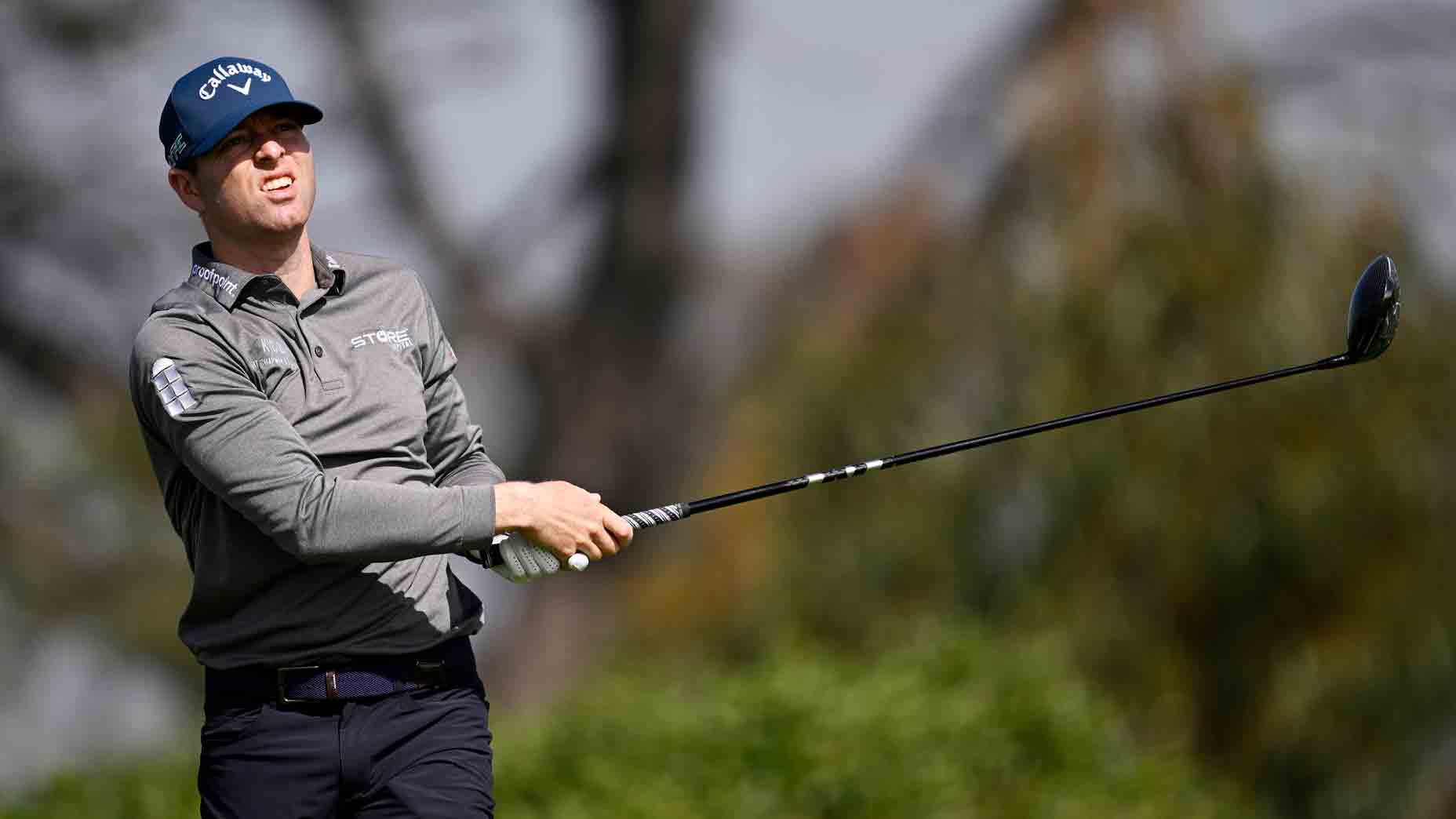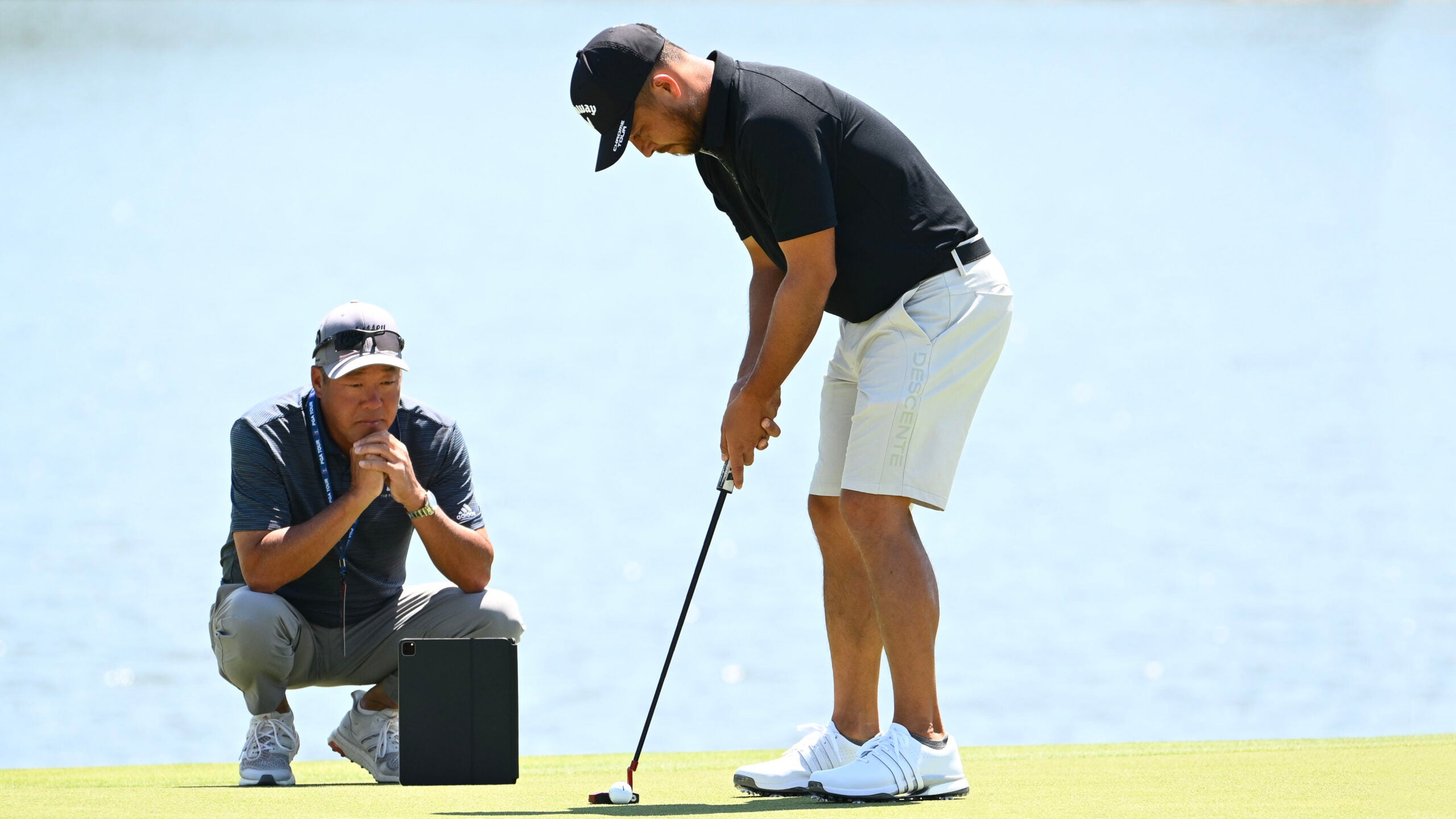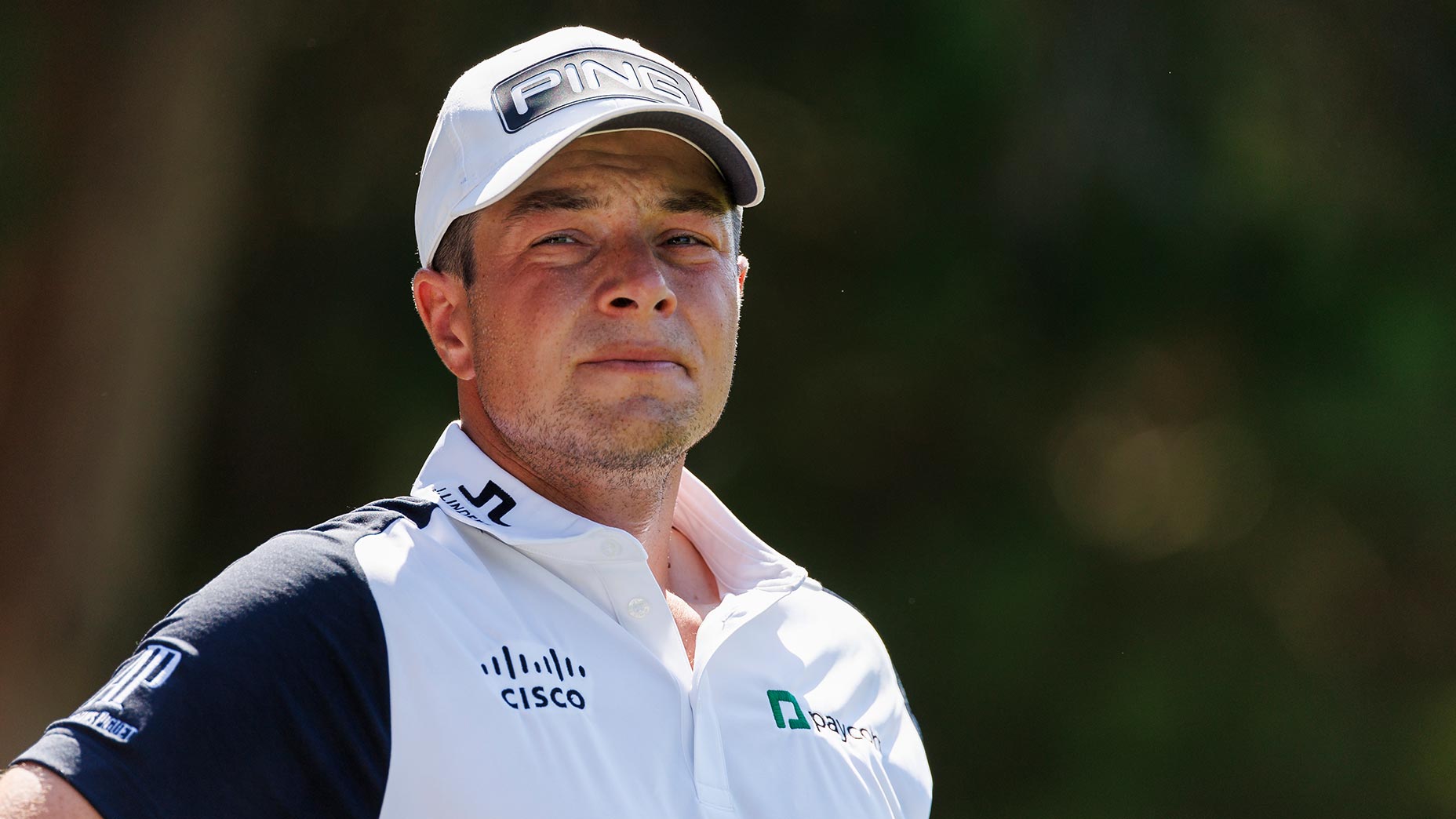It’s easy to mock Jay Monahan, just because he decided to side with his star player over his overserved fans. On Tuesday, the commissioner laid down the law: you may not yell Brooksie at Bryson DeChambeau, no matter how many Michelob Ultras (official beer of the PGA Tour) you have consumed. A commissioner’s first responsibility is to the players, their playing opportunities, their working conditions, their sensitivities. Their paydays.
Monahan has had a tough run, between Tiger’s car crash, the pandemic, Pat Reed’s rulebook issues and the B2B dustups. (The Tour’s lack of diversity cannot be put on a list. It’s too big.) Monahan has been standing in a hurricane holding on to his Sou’wester with two hands. As for this new edict, Monahan had do it. A PGA Tour commissioner, ultimately, serves at the pleasure of the men in Tourwear.
Bryson, ‘Brooksy’ controversy takes complex turn with Tour announcementBy: Dylan Dethier
Yes, a Tour commissioner has other constituencies. (Sponsors, partners and fans, just to cite the top of the order.) But for any commissioner, the players must come first. And that takes wizardry. Because all players are equal, but some are more equal than others. The commissioner’s mantra.
Joe Dey had to keep Jack Nicklaus and Arnold Palmer happy. Deane Beman had to manage personalities as diverse as Tom Watson and Greg Norman and Raymond Floyd. Tim Finchem’s commissionership was Tiger Woods’s life, in bad times and the many more good ones.
Jay Monahan’s job is the most complicated yet, in part because he has to tend to the needs of Brooks Koepka, Bryson DeChambeau, Rory McIlroy, Jordan Spieth, Justin Thomas, Dustin Johnson and scores of other players, big, little and in between. Tiger Woods. Phil Mickelson. Jim Furyk! Professional golf has always been star-driven, and the stars — today’s stars — all have the commish’s cell number. It can’t be easy, being Jay.
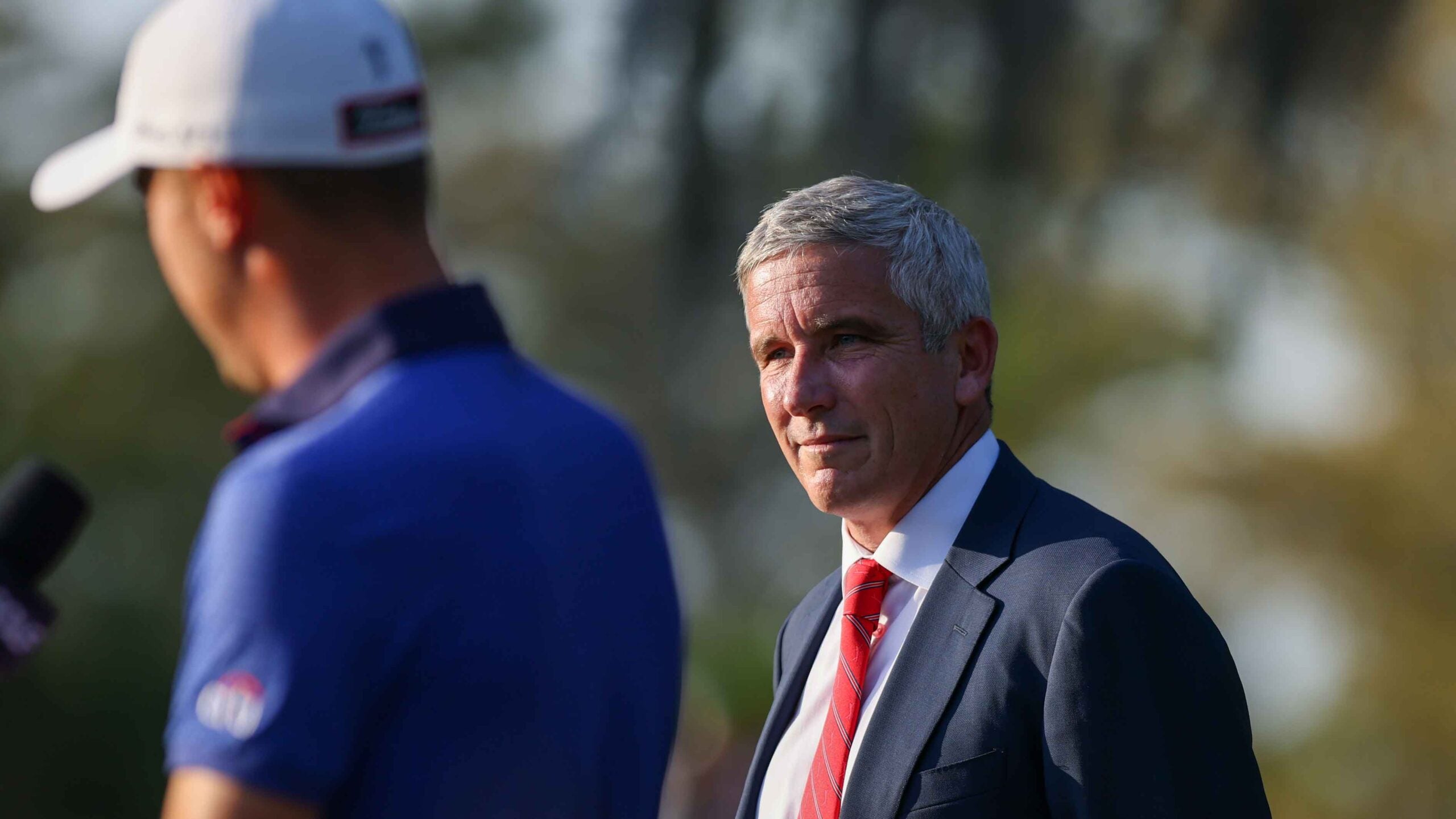
This is also true, but less obvious: It can’t be easy being Bryson. Bryson is different. He’s a different sort of golfer and person almost the ways Moe Norman was. As a starting point, the great Canadian driving machine solved golf’s riddles for himself. He was the least social of golf creatures. DeChambeau is built along similar lines. After he won at Bay Hill, I asked Bryson for his dream foursome. He quickly booked a tee time for five: Hogan, Arnold, his father — and Moe. Broadly, different scares us.
DeChambeau’s swing is different. His grips are different, his practice sessions are different, his haircut is different, his body dimensions are different. His comments to reporters during tournaments are sometimes total head-scratchers. His solution, for now, is to pretty much avoid reporters. On the course, with other players, he’s not exactly collegial.
‘No big deal’: Patrick Cantlay downplays Bryson DeChambeau’s on-course commentBy: Josh Berhow
That moment on Sunday, on the par-4 14th at Caves Valley, when he told Cantlay to stop walking? It was odd. It was different. But this should be noted, too: DeChambeau was within his rights. His was trying to play a shot, and he felt distracted by his playing partner, and he did something about it.
In the long run, DeChambeau will likely have made things worse for himself. At that moment, DeChambeau was trying to play a 475-yard hole with a 348-yard drive and a 129-yard approach shot. Some kind of wedge. Cantlay’s response was perfect: “No big deal.” At least, that was his public response. Somehow, the message of modern life has eluded Cantlay: everything is a big deal, these days. Everything is me-me-me. As studies in contrast, Cantlay and DeChambeau are out of a lab.
In On a Wave, Thad Ziolkoski writes about two kinds of surfers, “those that impose their will on a wave, and those who complement it.” The journey from ocean to course is one short beach walk. Cantlay, of course, is going to complement the course, play it as he finds it. DeChambeau, as Paul Azinger says, is going to “bully” it, impose his will on it. Cantlay is a world-class golfer who carries himself like your AP Calculus teacher. DeChambeau is the star fullback on the Texas high school team that went undefeated two straight years. But his response to the attention he has earned is to go into a sort of exile. Well, it takes all kinds, to make this world go ‘round.
Golf’s fundamental problem is not one that Monahan can fix. The golfers wanted more. More money, more exposure, more fame. Golf was not happy being a second-tier sport, not in the Age of Tiger, who was wildly underpaid. In chasing bigger-is-better, and more-is-more, the PGA Tour empowered each golfer to make himself a star. The golfer has a team, a brand, a social persona.
In chasing bigger-is-better, and more-is-more, the PGA Tour empowered each golfer to make himself a star.
Meanwhile, live, pay-at-the-gate golf fans (or a vocal minority of them) gave themselves a makeover, taking their cue from Tommy: See me, feel me, touch me, hear me for heal me. You can read last rites for the golf clap, the golf whisper, the golf murmur. There are really only two events left where fans come to watch and not be heard, and it’s not a coincidence that they are golf’s best events: the Masters and the British Open.
Monahan, speaking from some place deep within him, said something truly sound on Tuesday, responding to a reporter’s question about the Bryson and Brooks spectacle and all it has wrought. Here’s Monahan, lightly edited:
“I think this is an opportunity to reassess overall civility at our tournaments. And also fan behavior. [We need to] reset the expectations through our fan code of conduct. We have got to come together and demonstrate what is truly exceptional about our game. And if you go back to the history of the game, the values of honor, integrity, respect that have been central fabric to the game since the point in time, our expectation is that that’s what we’re going to experience at our tournaments.”
‘It’s pretty tough to be Bryson’: Rory McIlroy shares views on fan behaviorBy: Dylan Dethier
One of the few places left where that model works is at the orchestra. Music lovers (in normal times) fill concert halls, get out their coughs between the first and second movements of Dvorak’s New World Symphony and save their clapping and their stamping and their whistling (when so moved) for the end.
But golf is not taking its cues from classical music. The audience for classical music is getting older and older. Golf wants to skew younger and younger. Fans want to participate. Gambling already gets you closer to the action. What the players do is more personal to you. In other words, we’re stakeholders, too. Sotto voce is so yesterday. We live in the me-me-me world, too. The selfie. That says it all.
Justin Rose, far closer to Cantlay than DeChambeau in mood, manner and method, received the Payne Stewart Award Tuesday night in Atlanta. He spoke beautifully. One word he used really struck a chord: manners. Golf is a sport where you can and should practice good manners. In the end, it’s one of the game’s defining traits. These are not mannerly times. Manners, typically, are about putting another person ahead of yourself. Who is willing to do that? How Monahan can sell that and change the direction of a culture is hard to imagine.
Worthy goal, though.
Michael Bamberger may be reached at Michael.Bamberger@Golf.com
